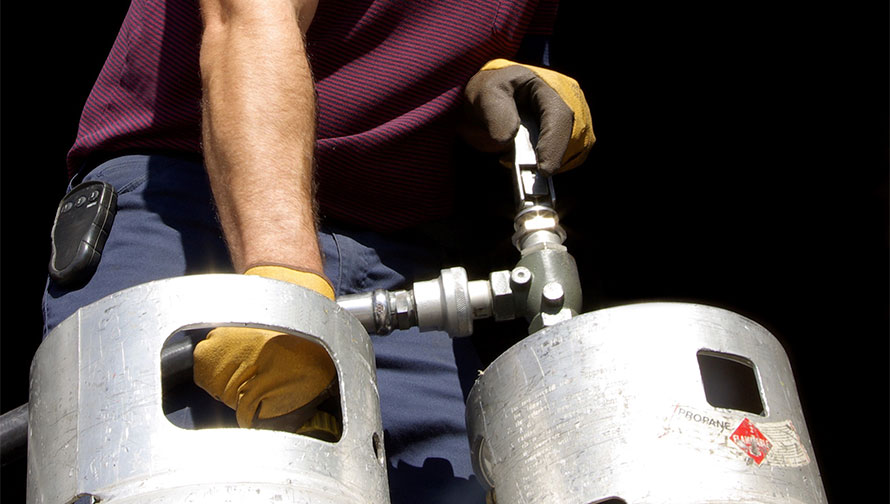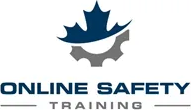Ensuring Safe Handling of Propane Cylinders

Ensuring Safe Handling of Propane Cylinders: Employer Responsibilities in Canadian Workplaces:
Propane is a versatile fuel used in various industries across Canada, from heating and cooking to powering forklifts and vehicles. However, the handling and exchange of propane cylinders pose inherent risks if not managed properly. Employers have a legal and moral obligation to ensure their employees are trained, equipped, and supervised to handle propane cylinders safely in the workplace. This article explores the responsibilities of employers in ensuring the safe handling and exchange of propane cylinders in Canadian workplaces, emphasizing the importance of comprehensive training, adherence to safety protocols, and proactive risk management.
- Regulatory Framework:
- Occupational health and safety regulations in Canada, both at the federal and provincial/territorial levels, establish requirements and standards for the safe handling and storage of propane cylinders. These regulations aim to prevent accidents, injuries, and fatalities associated with propane use in the workplace.
- Federal regulations, such as the Canada Labour Code, and provincial/territorial regulations, such as the Occupational Health and Safety Act (OHSA) in Ontario or the Workplace Health and Safety Act in Alberta, outline specific responsibilities for employers regarding the safe handling of propane cylinders.
- Employer Responsibilities:
- Employers bear primary responsibility for creating and maintaining a safe work environment for their employees, including those involved in handling and exchanging propane cylinders. Key responsibilities include:
- Providing comprehensive training to employees on the safe handling, storage, and exchange of propane cylinders, including proper lifting techniques, leak detection, and emergency response procedures.
- Ensuring that employees are equipped with appropriate personal protective equipment (PPE), such as gloves, goggles, and respiratory protection, when handling propane cylinders.
- Conducting regular inspections and maintenance of propane cylinders and associated equipment to ensure they are in good working condition and free from defects or damage.
- Establishing and enforcing safety protocols and procedures for the handling and exchange of propane cylinders, including proper storage, transportation, and installation practices.
- Conducting risk assessments to identify hazards associated with propane use in the workplace and implementing measures to mitigate risks, such as adequate ventilation, proper signage, and emergency shutdown procedures.
- Employers bear primary responsibility for creating and maintaining a safe work environment for their employees, including those involved in handling and exchanging propane cylinders. Key responsibilities include:
- Comprehensive Training:
- Proper training is essential for employees to understand the hazards associated with handling propane cylinders and the steps required to work safely with this potentially dangerous substance. Employers must ensure that all employees receive comprehensive training before engaging in propane-related activities.
- Training should cover:
- Identification of propane cylinders and associated equipment, including valves, regulators, and hoses.
- Safe handling practices, such as proper lifting techniques, secure storage, and transportation procedures.
- Leak detection methods and response procedures in the event of a propane leak or release.
- Emergency shutdown and evacuation procedures in the event of a fire, explosion, or other emergency involving propane.
- Adherence to Safety Protocols:
- Employers must establish and enforce strict adherence to safety protocols and procedures for handling and exchanging propane cylinders. This includes:
- Using designated areas and equipment for propane cylinder storage, handling, and exchange operations.
- Implementing proper signage and labeling to identify propane cylinders, storage areas, and emergency shutdown controls.
- Ensuring that employees follow established procedures for inspecting, connecting, and disconnecting propane cylinders to minimize the risk of leaks or accidents.
- Providing adequate training and supervision to employees involved in propane cylinder exchange operations, such as refueling stations or distribution centers.
- Employers must establish and enforce strict adherence to safety protocols and procedures for handling and exchanging propane cylinders. This includes:
- Proactive Risk Management:
- Employers should adopt a proactive approach to risk management by identifying and mitigating hazards associated with propane use in the workplace before they lead to accidents or injuries.
- This may involve conducting regular inspections, hazard assessments, and safety audits to identify potential risks and implement corrective actions.
- Employers should also encourage employees to report safety concerns or near misses related to propane handling and exchange operations to facilitate continuous improvement in safety practices.
- Employers should adopt a proactive approach to risk management by identifying and mitigating hazards associated with propane use in the workplace before they lead to accidents or injuries.
The safe handling and exchange of propane cylinders are essential tasks in many Canadian workplaces, but they also pose inherent risks if not managed properly. Employers have a legal and moral obligation to ensure their employees are trained, equipped, and supervised to work safely with propane cylinders.
By providing comprehensive training, adhering to safety protocols, conducting regular inspections, and adopting a proactive approach to risk management, employers can create a safe work environment where the risks associated with propane use are minimized, and employees can perform their duties with confidence and peace of mind. Through collaboration, communication, and commitment to safety, employers can fulfill their responsibilities and prevent accidents and injuries associated with propane handling and exchange operations in Canadian workplaces.
Categories
- Aerial Lift
- ATV Training
- Bear Awareness
- Chainsaw Training
- Confined Space
- Defensive Driving
- Forklift Training
- Lockout Tagout
- Online Safety Training
- Overhead Crane
- Pipeline Construction Safety Training
- Propane Handling
- Safety Training Benefits
- Scissor Lift
- Skid Steer Training
- Space Awareness
- TDG
- Telehandler Forklift
- Traffic Control
- Train the Trainer course
- Training Course
- Uncategorized
- WHMIS
- Workplace Harassment and Violence Preventiont
